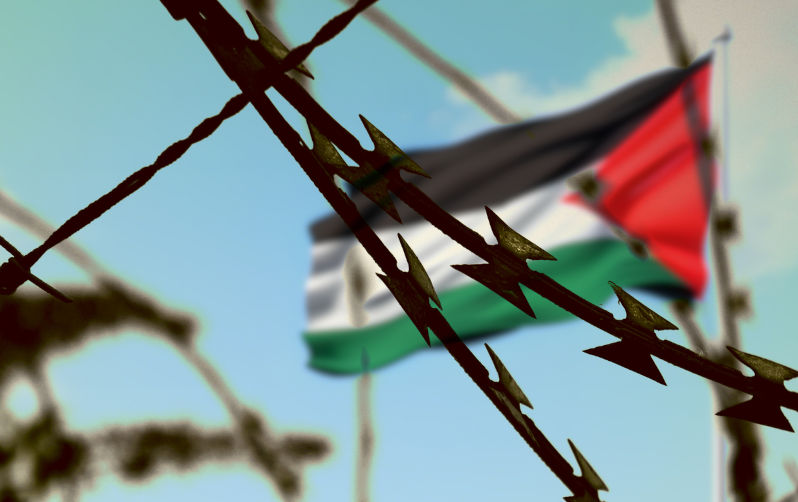History did exist before 7 October 2023. It existed before 1948 and 1929 and goes back millennia.
Archaeological evidence shows the geographic region was known as Palestine as far back as 4000BCE and had a Jewish presence dating from 3800 BCE.
In contemporary politics, 7 October 2023 represents a decisive shift in the Middle East that has significant global implications, though not in the direction of the aspirations of the Palestinian people for liberation: peace, freedom and self-determination, with a democratically elected government.
Many different factors are at play
Two million residents of Gaza are more than simply internal refugees. The Palestinian Ministry of Health recently reported 46,000 people had died and it is expected that tens of thousands more will be found buried beneath the rubble of what was once their homes. The largest number of child amputees in history is to be found in Gaza. Gaza has suffered the worst genocide since Rwanda (1994) and the first to be live streamed into people’s phones. Israel’s war crimes breach the very amendments to the Geneva Conventions designed to protect civilians and adopted in response to the Holocaust.
Let’s be clear. When they launched 7 October 2023 the Hamas leadership knew, and accepted Israel’s response would mean thousands of civilian deaths. What occurred on that day was a war crime: civilians were slaughtered, sexual violence occurred, and hostages were taken. If Israeli Jews view the world as an antisemitic existential threat, then the Hamas action played right into that mentality.
Hamas is a reactionary, patriarchal organisation that will not liberate the people for as long as it excludes over half of Gaza’s population from meaningful roles because of their gender. Dissidents are still publicly executed.
The Palestinian Authority has become a hollow shell run by corrupt octogenarians. It acts as Israel’s cop in the West Bank, persecuting activists and enabling settler expansion. If this is the consequence of the politics of appeasement that has arisen out of the Oslo Accords, then it’s no wonder people turn to more extreme means to seek liberation.
Polls conducted by the Arab World for Research and Development and the Palestinian Centre for Policy and Survey Research in late 2024, show overwhelming desire for democratic elections along with significant decline in support for the incumbents in power, and turning away from armed struggle as a tactic.
Today, a new generation of Palestinian leadership is emerging. They must grow and mature in the face of entrenched hostility from the incumbent authorities and brutal Israeli oppression.
The number of Western countries that have had the courage to publicly condemn Israeli behaviour can be counted on three fingers — Ireland, Norway, Spain — while others such as Australia have shifted their votes in the UN while publicly refraining from too harsh comments.
To their credit, countries of the global south are outraged, so much so that South Africa, for example, has taken Israel to the International Court of Justice. But while the global south might have the numbers, its members don’t have the power to bring about change.
Arab governments, who do have sufficient power, remain the Palestinians’ fair-weather friends, worried that Palestinian liberation will be the catalyst for another Arab Spring. Iran and its allies are weakened while the Saudi’s patiently wait to resume normalisation talks.
At the popular level, by the end of 2023, stunned by Israel’s response to the Hamas attack, millions around the world protested. Twelve months later those numbers have reduced to a hard core because it is impossible to sustain massive participation numbers in regular protests, particularly when participation is predominantly on moral rather than self-interest grounds.
Public opprobrium with Israel is ubiquitous. In 1982, following the Sabra and Shatila massacres, people began wearing the keffiyeh in Palestinian solidarity. Israel responded by flooding the globe with multi-coloured and styled keffiyehs, turning it into a fashion item. Today that is not possible. Now, symbols are everywhere, be they keffiyehs or watermelon on clothing, car stickers or graffiti. Israel has done irreparable damage to its public image. Young Western Jews may be turning away from Israel, but their contemporaries within Israel are swinging in the opposite direction.
An inclusive sustained massive global movement is needed to compel Western governments to pressure Israel towards some sort of equitable resolution. Yet there are advocates critical of the protest movements. In an interview with mainstream media, Izzat Abdulhadi, recently retired Palestinian Ambassador to Australia, expressed his concern, saying there are “groups in danger of hijacking the Palestinian cause as “anti-imperialists, extreme socialists, extreme Muslims’.” Bashir Abu-Manneh, teacher at Leeds University and contributing editor to Jacobin, published an article headlined The Palestinians Need Mass Support, Not Sectarian Division. Ran Greenstein, the South African–Israeli academic who organised the Gaza Solidarity debates, noted in his contribution that “Is it a coincidence that radical demands become more common precisely when the chances of their realisation recede?” In an Al Jazeera interview, Israeli historian Ilan Pappé has called upon the global alliance “to abandon the purist approach [and] take into account that people disagree even on fundamental issues, but are able to work together for stopping a genocide in Gaza, for liberating colonised people”.
In the 1970-80s people campaigned for “a democratic secular state of Palestine, inclusive of all ethnicities and religions” as a positive construct, yet for today’s activist the sentiment is simply “destroy Israel”. They have neatly divided the world into Zionist and anti-Zionist and anyone who is not overtly part of the latter is deemed to be part of the former. Politicians who are known to be pro-Palestinian, but are limited in what they can say due to party discipline, have had their offices trashed and staff threatened. Algerian psychiatrist and political philosopher Frantz Fanon’s reference to the oppressed having a right to defend themselves is taken out of context to justify, even romanticise, Hamas violence. The keffiyeh is a symbol of solidarity with Palestine, but it also signifies membership of an exclusivist club.
Many of the chants play into the hands of the pro-Israel lobby who use them to shift the focus off Gaza and onto antisemitism. Simplistically claiming that the Ashkenazim are “white colonial settlers”, as they do, is ahistorical and self-defeating. Aside from the Mizrahi/Sephardic continuous history in Palestine, the Ashkenazim were never white enough for Europe, which is why Zionism arose to offer a conquering return to the ancestral haven. Conversely, Palestinians understandably look on with angst when someone born outside Israel is automatically granted citizenship based on ethnicity, while they are being driven out and right of return is denied.
The right-wing opportunists and reactionary zealots who dominate Israeli politics have seized an opportunity to implement their desire for a Palestinian-free ‘Land of Israel’ from the rivers to the sea and potentially beyond. As liberal Jews emigrate, their numbers are replaced by reactionaries moving in. Still, 80% of Israelis were born there. Over 100,000 Palestinians have fled Gaza, fearful of another Nakba. Yet the reality is that the approximately 7 million Jews and 7 million Arabs who live between the river and the sea are not going anywhere.
Analysts such as Ilan Pappé and British journalist Isabel Kershner predict that Israel’s internal contradictions will, sooner or later, tear it apart. What the consequences of that would be is unknown. There would be bloodshed on a scale that makes the current horrors seem minor. Is it possible that the messianic zealots, seeing their vision diminish, could resort to the suicidal Masada solution and nuke the region?
Progressive forces within Israel are minute. Some candles in the darkness include B’Tselem, Breaking the Silence, and Standing Together (purposely binational, and targeted by some hardline activists who think joint struggle represents normalisation). Like the new generation of Palestinian activists, they live with persecution and marginalisation.
We breathe a sigh of relief that a pause has been achieved. It has been obvious for months that the Israeli government was intentionally subverting efforts to achieve a ceasefire. As a result of public frustration and military exhaustion there has been growing pressure on the Israeli government. While Donald Trump’s ego is desperate for a Nobel Peace Prize, his diplomatic postings to the region are ardent supporters of Eretz Israel indicating expansion will continue, just as the Gaza ceasefire is matched by increased Israeli repression in the West Bank.
No doubt diplomatic initiatives for a solution will gain some momentum at the same time as Western governments mutter “two-state solution” into their beer while ordering a meal. A two-state solution would leave Palestine as an Israeli dependency. A secular one-state solution is as distant as the Voyager spacecraft. The confederacy model appeals as a potentially viable halfway house, yet while it exists only in academic circles, it lacks grassroots substance.
We can only hope the new generation of Palestinian leadership will navigate between the roadblocks and AI drones and come to robust fruition, that the flickering candles within Israel become a bushfire, and that today’s newfound activist learns the art of mass mobilisation and doesn’t simply move on to their next cause célèbre.
Given what has happened in the region in the last 100 or so years, much less the last 15 months, how any two peoples with a historic connection to the same piece of land will manage to live together in peace and equality appears to be a Sisyphean task.
Besides, any sustainable outcome needs to be achieved before global warming renders the region uninhabitable.

Philip Walker
Philip Walker is a human rights and anti-racism campaigner. In the early 1980s he formed the Wollongong branch of the Palestine Human Rights Campaign. He travelled through the Middle East just prior to the outbreak of the first intifada. Phillip worked in humanitarian aid for two decades in Africa, witnessing the fall of apartheid in South Africa.
